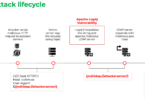What is the Best CMS for Businesses?,…. When it comes to managing a website, nothing makes it easier than a content management system. With the ability to add new posts, edit old ones and completely transform your website at any given time, managing a website has never been easier.
Over the years there have been many new CMS platforms which have appeared on the market, each with their own unique features and abilities. However, with so many CMS platforms out there, it can be hard to know which one to choose.
What is the Best CMS for Businesses?

To help you decide which CMS platform you should be using to manage your website, we thought we’d have a look at the top 3 CMS platforms. If you’re looking for a CMS platform or just fancy a change from the current one you’re using, then look no further. Let’s take a look at the most popular platforms and how they differ from each other.
The 3 Contenders
Joomla
Launched in 2005, Joomla is a free and open source content management system that is currently estimated to be the 2nd largest. As of November 2016, Joomla has been downloaded over 81 million times and currently powers 3.3% of all websites online. With its highly customisable interface, Joomla is currently used on a lot of news websites, blogs, and eCommerce stores to name a few.
Having over 7,000 free and commercial extensions for users to use, Joomla gives users endless creativity and the ability to create whatever they want. As you’d expect from a CMS, the software also allows users to edit and manage their website with just a few clicks of a button.
Drupal
Released in 2000, Drupal is by far the oldest of the 3 contenders but is oldest always the best? As of July 2017, Drupal currently has over 1.1 million active users and has been downloaded over 15 million times. The standard release of Drupal, known as Drupal Core, is entirely open source and free. This means users are free to modify and alter the program in whatever way they like in order to fit their requirements.
Its large community of over 1.3 million members has resulted in more than 37,000 free modules that help extend the functionality of Drupal, as well as over 2000 free themes.
WordPress
WordPress‘ market share is 40% of all websites. The most well known CMS by far has to be WordPress. Released in 2003, WordPress has grown to become the biggest CMS software which currently powers over 40% of websites online! Known for its ease of use, library of plugins and themes, WordPress can be modified to suit almost any need. The number of plugins and themes consistently increase, but the last tally stood at 4,000 free themes and 45,000 free plugins.
Currently, it has the largest community out of any CMS platform, and it’s clear this is where all the experienced developers go. With a huge community and thousands of tutorials, using WordPress to achieve your goals has never been easier.
What Are the Differences?
Although all of these platforms help you manage your website’s content, there are several differences between the 3. Most of the differences are down to ease of use and customisibility. All of the platforms are open source which allows developers to create new plugins and extensions which can be used for just about anything. However, most of these plugins don’t come free; developers need to pay the bills somehow! This brings up an interesting problem.
Since developers need people to buy their plugins or pay them to create new ones, they tend to go to the most popular platform. After all, would you rather have 1 million potential clients or 20 million+? Since WordPress is the most popular platform by far, it means a lot of developers have decided to make it their primary go-to platform. This is excellent news for WordPress users as it leaves them with thousands of plugins, themes and developers to help them create the website of their dreams.
For other platforms, it’s bad news. Since most developers specialise in only WordPress there is often a lack of developers for certain platforms. This can make customising and developing a website a lot slower and expensive. Since these developers are hard to find they can often charge much higher prices than WordPress developers. Good news for developers but bad news for clients.
Which One Should You Choose?
When it comes down to choosing a platform is can be a hard choice. After all, all of the platforms are open source and pretty much do the same things as each other. When one platform gets a new feature, it’s only a matter of time until it gets added to the others.
The main difference what you will find between the 3 platforms is often the support and community. WordPress is by far the largest CMS and just happens to have the most plugins, themes and online support. This itself is often a deciding factor for many businesses. With such a large online community, getting help with your website is as easy as posting online and reading the replies in a matter of minutes.
Other platforms can take a lot more research before you find the answer to your problem which only causes delays and frustration.
If we had to pick a CMS to use, then it would most certainly be WordPress. With its thousands of themes and plugins, making a website has never been easier no matter your business or industry. No matter if you need an eCommerce store, gallery, interactive video or sales page, WordPress can do it all in record time.
Drupal and Joomla can pretty much do everything WordPress can do, but it will take you twice as long to do it and you’ll be limited to certain themes. With WordPress currently holding the largest market share over the other 2 platforms, it’s easy to see how it got there in the first place. It’s simple to use interface, great customisibility and huge community have made it the best content management system out there by miles.







Leave a Comment
You must be logged in to post a comment.